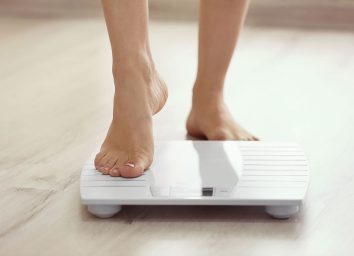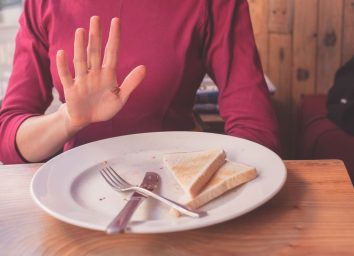One Surprising Weight Loss Tip So Easy You Won't Believe It Works

For a moment, I'd like you to imagine a spider.
When certain varieties of spiders hunt for prey, they opt for a "sit-and-wait" strategy: They spin their webs and then they let their food come to them. While waiting, they sit there motionless, sometimes for very long periods of time. Yes, it's creepy, but they do it for several reasons.
For one, spinning a giant web takes an enormous amount of energy, so they need to conserve what energy they have left. The second is that pouncing on prey takes tons of energy, too. And these arachnids, since they need to conserve what energy exists in their little bodies, have abnormally slow resting metabolic rates to keep them alive. That state of motionlessness, when they're not burning up energy and their bodies essentially shut down, is what scientists have termed the super-relaxed state (SRX).
Get this: There's increasing evidence that we may have it, too.
In a study published in the journal PLOS One, researchers led by Roger Cooke, Ph.D., of the University of California, San Francisco, looked closely at the behavior of myosin, a motor protein in cells. Myosin is crucial to muscle function and metabolism in frogs, spiders, and other animals, including humans. The researchers discovered that in different species—including spiders—myosin simply shuts off when the muscles are inactive during the super-relaxed state. In other words: When your muscles aren't moving at all—for even short periods—your metabolism isn't churning.
Now, this doesn't necessarily mean the solution to a fully optimized metabolism is living your life on a hamster wheel in constant forward motion. But this groundbreaking research has shined a light on something wildly overlooked in today's day and age: the simple importance of just moving around.
Not hitting up a Flywheel class for a 45-minute spin class. Not running a marathon. And definitely not training to be a Navy SEAL.
No, we're just talking about swinging your arms while you lie on the couch. "Moving through the day is important," says Clyde Wilson, PhD, of the University of California, San Francisco. "Because a simple twitch from your nervous system to muscle is what gets you out of the super-relaxed state."
The most cutting-edge research on the subject says that stretching, using your jaw muscles to chew gum, fidgeting, standing up when you're sitting down, and even using your muscles again to sit down after you've been standing still for a while—will indeed help your body burn energy. (That's right! Sitting down can help boost your metabolism!)
Here are some great ways you can put this knowledge into action to lose more weight. And for more amazing weight loss tips you probably didn't know, don't miss these Sneaky Weight Loss Tips That Totally Work, Say Experts.
Stage One: Move more than a spider

According to fitness buff Tim Blake, owner and founder of SuperFitDads.com, the single biggest thing you can do to get your metabolism firing is to increase your basic movement, or your Non-Exercise Activity Thermogenesis (NEAT). "Basically, that means adding movement to everything you do, whenever and wherever possible, he explains."
This includes simple things like adding fidgeting hands and feet to five hours of desk work. "That racks up an additional caloric expenditure equivalent of running 1.5 miles! Fundamentally, this should be your mantra: Never walk when you can run, never stand when you can walk, never lie down when you can sit," he says. Your metabolism isn't the only thing affected by your sedentary lifestyle. Check out What Happens To Your Body When You Sit All Day.
Stage Two: Build more muscle to burn more energy
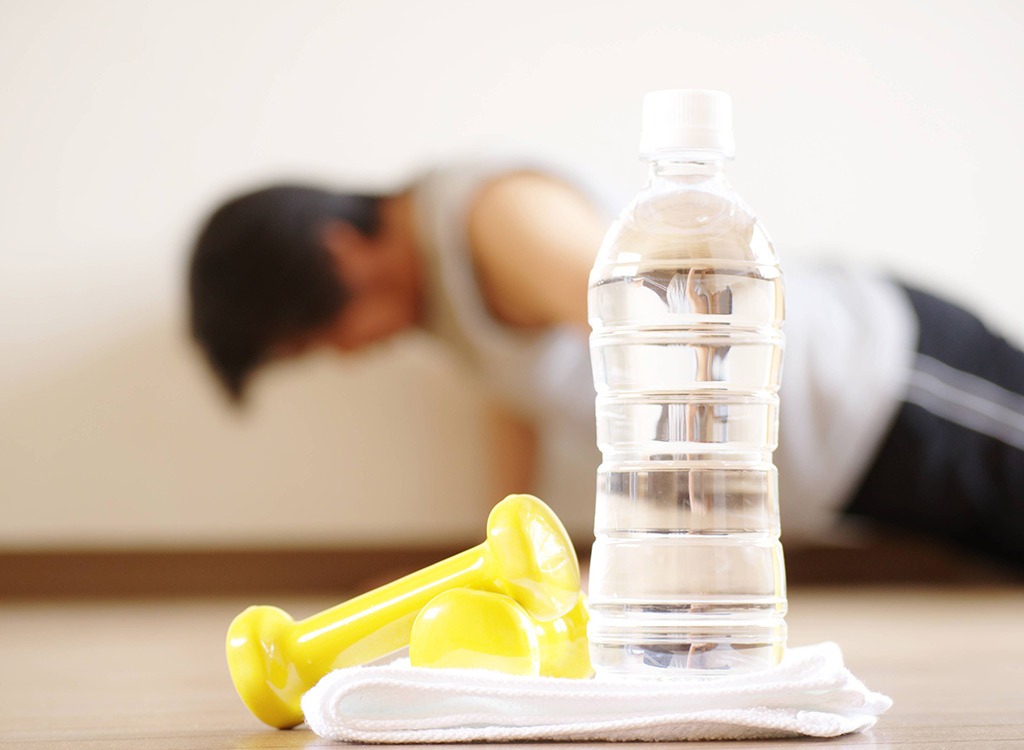
Let's say you're determined to burn more energy and therefore burn more fat. "Let me give you an example of the car metaphor," says Wilson. "If you're a car engine and you've had years of stress and low sleep and you're sedentary, your engine has shriveled to the size of a lawnmower engine." If you want to become a Ferrari, you need bigger muscles.
"You can double and even triple the size of your engine," he says.
This means giving your muscles enough resistance so that they can grow and recruit more muscle. Here are some exercises you can do at home to achieve this: push-ups, squats, lunges, crunches, planks, and wall sits. For more, there are these 25 Easy Exercises That Make You Feel Better.
Stage Three: Make your body more efficient
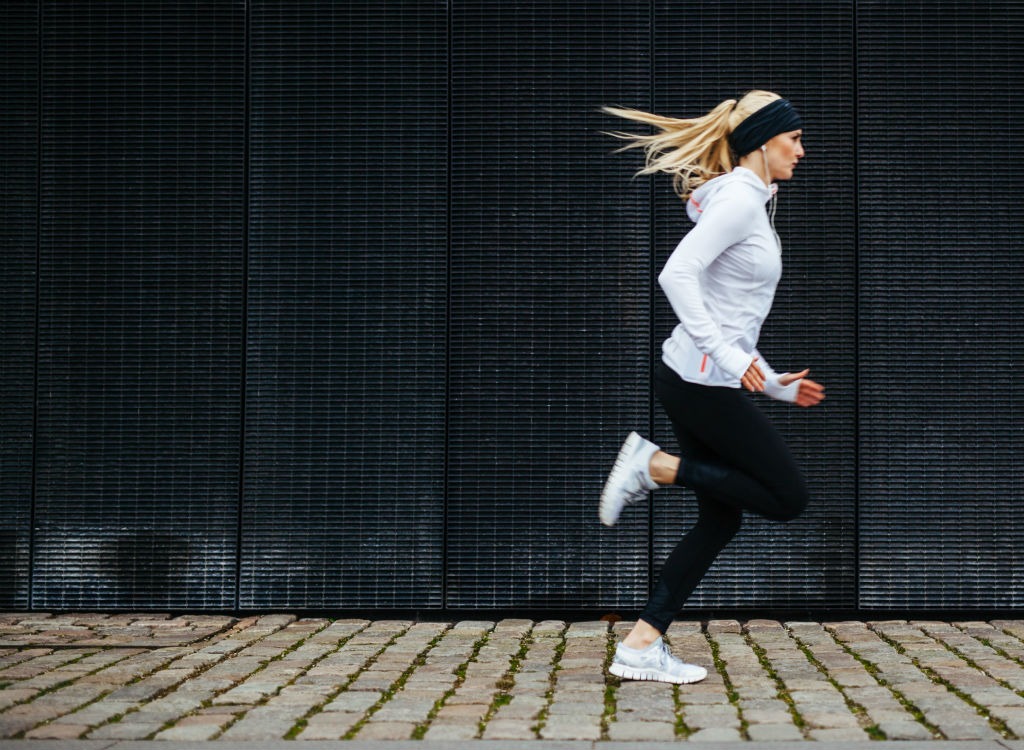
When you grow your engine, you'll be burning more fat than ever before. But you can still do better. You've probably heard the term "high-intensity intervals training" (HIIT) before. At its most basic, it means doing short bursts of really intense exercises—like throwing ropes at the gym, doing all-out sprints (on foot or on a bike), performing Burpees or mountain climbers, or trying the VersaClimber, or, frankly, anything else that is really, really hard and you can only do for a short amount of time, and then resting for a brief period before going at it again.
"This places a high metabolic demand on the body, burns lots of calories in a short amount of time, produces high post-workout calorie burn, and helps to improve one's level of fitness," says Kathleen Trotter, a personal trainer and author of Finding Your Fit. "Plus, intervals are a fantastic workout regardless of your fitness level; you adapt the intensity to fit your current capacity."
A study conducted by the Mayo Clinic and published in the journal Cell Metabolism found that HIIT exercise can actually slow down your body's aging process on a cellular level.
"If people are looking to improve performance in the most time-effective way, and if they're looking to improve health in the most time-effective way, then I think incorporating interval training is a very good strategy," says Martin Gibala, Ph.D., a professor of kinesiology at Canada's McMaster University who is widely regarded as the world's foremost expert on the science of high-intensity exercise.
But Remember: To burn more, move more
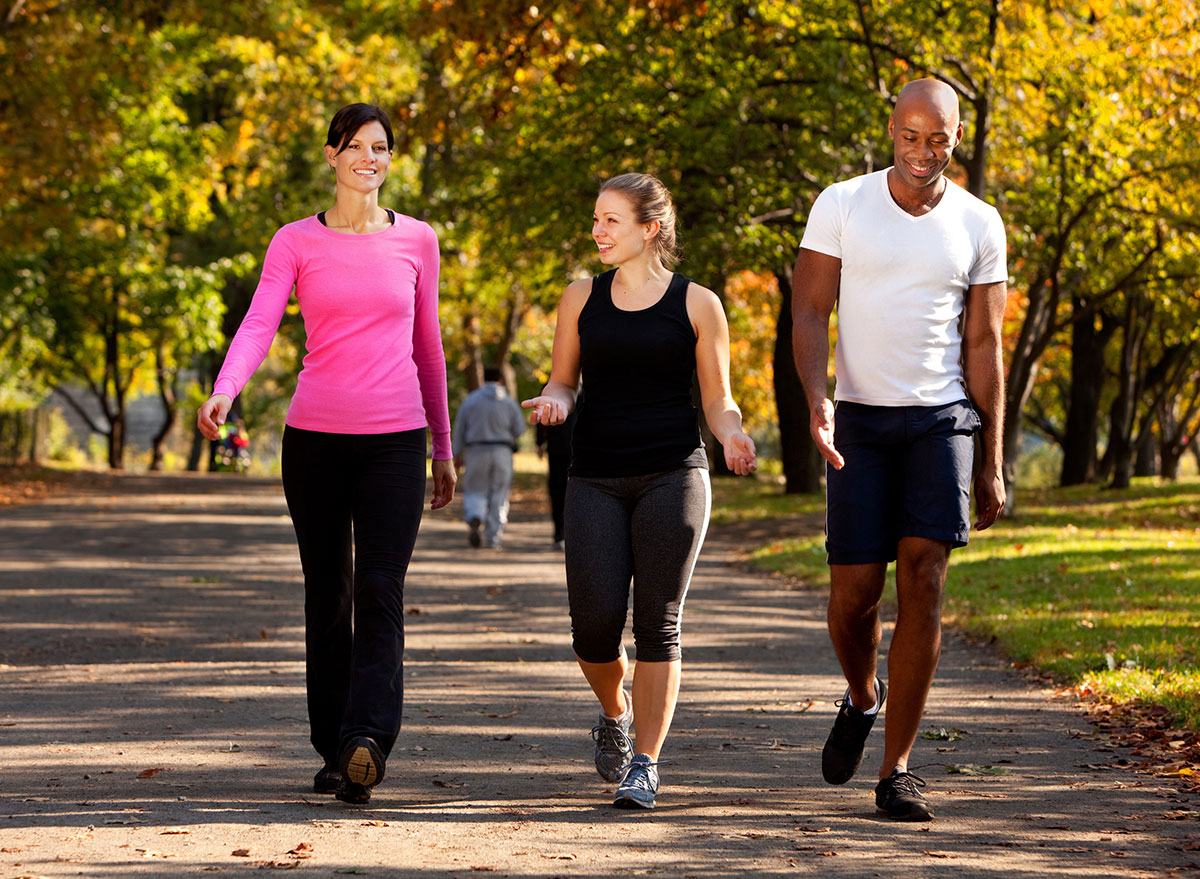
If you want to burn more calories, you need to get your body out of the super-relaxed state, and that simply means moving more—even if you're on the couch watching TV. For more great weight loss advice, don't miss the 200 Greatest Weight Loss Tips Ever.

